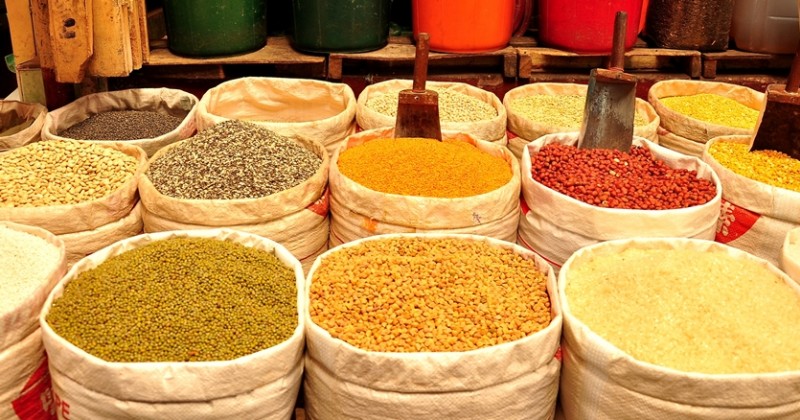Healthier eating doesn’t mean having to buy trendy, expensive foods that you don’t know how to prepare. Beans and other legumes are culturally familiar foods to most of us and are nutritional gems – lowering our risk of heart attacks, diabetes, and some cancers.
Beans are high in protein and are a vegetable too. They make a hearty main meal and as a side dish provide low fat, gluten-free, healthy nutrition in a variety of colors and tastes.
 Dietitians and other nutritionists can emphasize the cultural traditions or current practices that are ‘good’ or healthy and provide support for those behaviors rather than suggesting a different behavior that is unfamiliar or harder to do. For example, most Americans do not eat enough fiber. Rather than telling someone that, “You need to eat more fiber.” How about an inquiry into what other foods they DO eat, and what are some family staples or recipes? Maybe these personalized inquiries will not lead to discovery of an adequate diet after all, but they will suggest ways to boost positive habits. Such as, “Wow, you already eat beans on Sunday! Did you know beans are good for you and contain fiber? Do you think you could eat beans on another day of the week too?” There are recipes and nutrition information available on this website.
Dietitians and other nutritionists can emphasize the cultural traditions or current practices that are ‘good’ or healthy and provide support for those behaviors rather than suggesting a different behavior that is unfamiliar or harder to do. For example, most Americans do not eat enough fiber. Rather than telling someone that, “You need to eat more fiber.” How about an inquiry into what other foods they DO eat, and what are some family staples or recipes? Maybe these personalized inquiries will not lead to discovery of an adequate diet after all, but they will suggest ways to boost positive habits. Such as, “Wow, you already eat beans on Sunday! Did you know beans are good for you and contain fiber? Do you think you could eat beans on another day of the week too?” There are recipes and nutrition information available on this website.
These types of enabling approaches to improving nutrition are especially important when giving nutrition advice to persons with limited incomes. Many chronic disease conditions are more common among people who have less access and income to purchase nutritious foods. In the United States, some nutrition assistance programs have begun to include beans in recent years to meet cultural preferences. Since low-income people have a higher risk of chronic diseases, do they know about the health benefits of beans? To answer this question, I launched a research study to find out.
We asked low-income women if they were aware of some of the best-documented health benefits of beans such as cholesterol reduction, increasing fiber, controlling blood glucose, and lowering risk of some cancers. For most questions, about 50% of the 406 women were neutral or had no opinion about the health benefits of beans.
We don’t think their lack of an opinion was because they are not concerned about their health. We believe that public health nutrition agencies need to be more active in getting the word out to low-income people about the healthfulness of legumes. Unfortunately, many public health agencies talk about how beans are ‘economical’ or ‘low cost.’ Who wants to eat something because it is ‘cheap?’ We want to eat foods that taste good and are good for us. Labeling beans as the ‘poor man’s meat’ is a sure-fire way to discourage consumption by people.
Around the world, food is more than daily sustenance. It is the beginning of social relationships as well as health. Public health nutritionists, dietitians, and medical professionals should focus on the joy and cultural bonding that comes from food practices. With beans, let’s look at cultural stories and use cultural ritual to help people reconnect to their environment, history, and each other. Including healthful traditional foods such as beans in the diet could help reduce disease in the long-run, but also solidify cultural ties and aid in empowering limited-resource groups to maximize their potential.
If we can change the way nutritionists approach diet and in particular their attitude to beans then we have an opportunity to improve the health of low-income groups around the globe. But relying on the affordability of beans in North American settings is not the way forward according to our research.
By Donna M. Winham, Assistant Professor in Food Science and Human Nutrition at Iowa State University.
